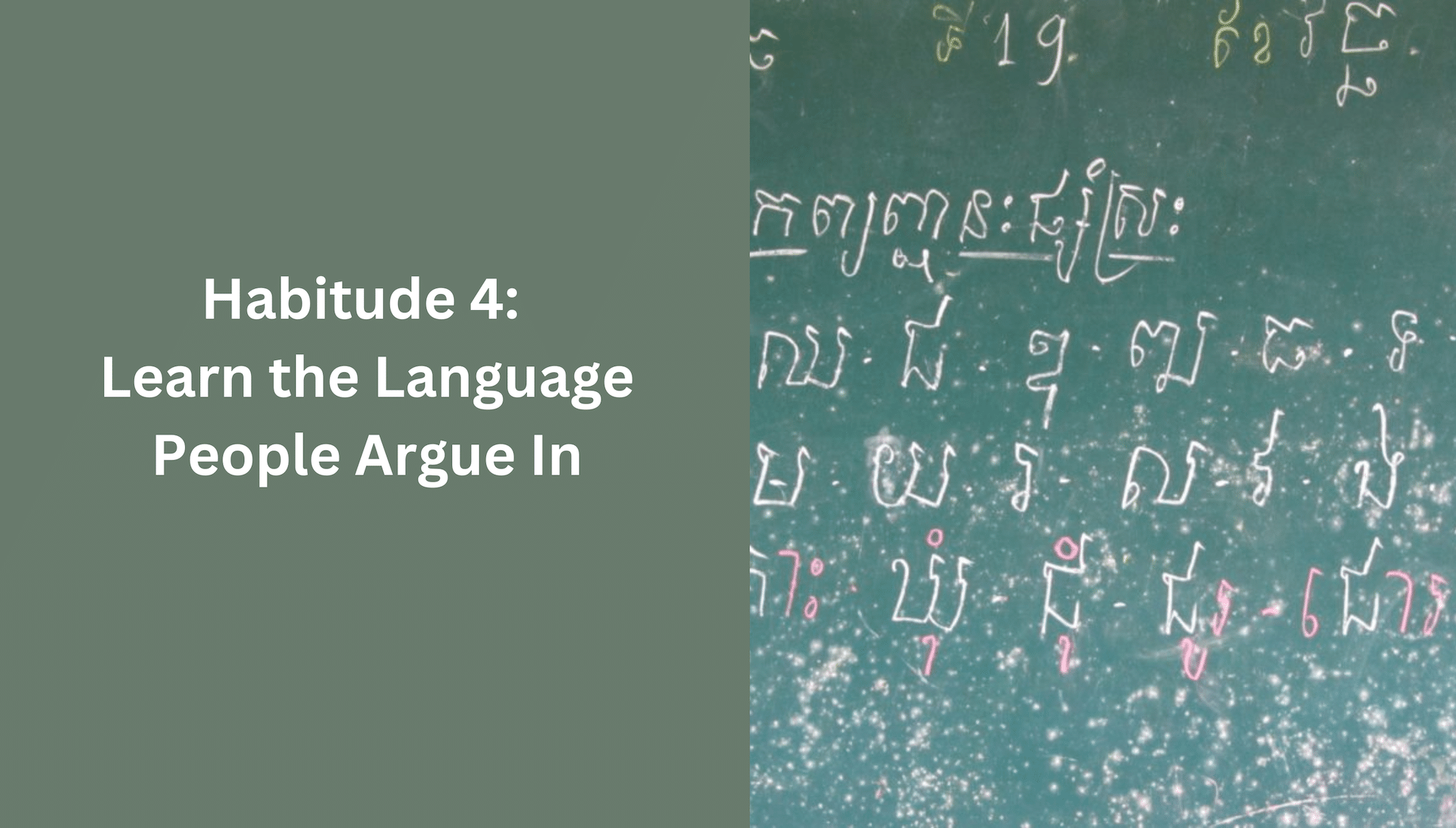By Jean Johnson
Learn the language people argue in!
This was my response to the question: “If people speak two or three languages, which language would I recommend a missionary should learn and use?
Makara spoke English all day long at the foreign company he worked for. On the way home from work, he saw his son ‘popping wheelies’ on his motorcycle in the middle of a main road. Right then and there, his son wiped out on the pavement almost hitting a pedestrian. He needed 22 stitches and the cycle was in even worse shape.
Makara had already told his teenage son to NOT use the cycle for goofing around. The family had only one cycle, and the father walked to work just so his son could use it to get to the university. As soon as Makara’s son returned home from the clinic, Makara scolded his son as any father would do. They argued back and forth for ten whole minutes. Neither of these two men spoke a word of English during this time.
Why? Because they were engaged in a topic that carried a lot of emotion and concern for both the father and son.
No matter how many Khmer women spoke English in Cambodia, I have never heard one mother sing a lullaby to her baby other than in Khmer. Presently, the majority of my neighbors from Spanish speaking parts of the world, know and speak English. But when it comes to music, I only hear songs blaring in Spanish and tunes that I imagine they grew up with.
Even if people speak a second or third language, they most often revert to their heart language when engaged in moments of heart, passion, and urgency. So would it not make sense for the missionary to learn the heart language? Would it not make sense for the person or persons on the receiving end of our mission efforts to:
- First hear about the God of every tongue and every nation in their heartfelt language?
- Learn to follow and obey God in a language that comes from a place of earnestness, passion, and fervor?
- Tell their neighbors about a God that speaks their language?
To be honest, not learning the heart language of the people is like a man saying to his wife: “Once we get married, I have no intention of being intimate with you.” Speaking and knowing the heart language allows us to communicate and relate to the part of the person where they house the most intensity and authenticity—the place where they argue from, sing from, cry from, dream from, and pray from.
You may have heard of this quote from Nelson Mandela:
If you talk to a man in a language he understands, that goes to his head. If you talk to him in his language, that goes to his heart.
I wonder if Mandela’s quote is fitting for what happened on the day of Pentecost when the disciples spoke in other tongues:
Now there were staying in Jerusalem God-fearing Jews from every nation under heaven. When they heard this sound, a crowd came together in bewilderment, because each one heard their own language being spoken (Acts 2:5-6).
I know it can be awfully difficult to learn another language. But if I can do it, you can do it. I had my own barriers to overcome and I will speak of this in Habitude 5: Learn the Heart Language Until it Hurts.
To Sharpen this Habitude:
1. Pray and ask others to pray for you—that you will learn the heart language.
2. Learn the language, then you will learn the culture.
3. Learn the culture, then you will learn the language.
4. Count learning the language as important as a doctor learning to use a scalpel.
5. Consider not using English as a platform for ministry.
6. If you have donors, advisors, or directors, tell them why you value the language and let them know that learning the language is ministry, and you will be busy with it for awhile.
To revisit the third habitude go to: /habitude-3-count-learning-as-ministry-day-1-affects-day-100-habitudes/
To revisit the introduction to DAY 1 affects DAY 100 Habitudes go to: /day-1-affects-day-100-habitudes-what-are-day-1-affects-day-100-habitudes/
** DAY 1 affects DAY 100 is part of Five Stones Global’ branding and a quote from the book We Are Not The Hero: A Missionary’s Guide For Sharing Christ, Not a Culture of Dependency.


